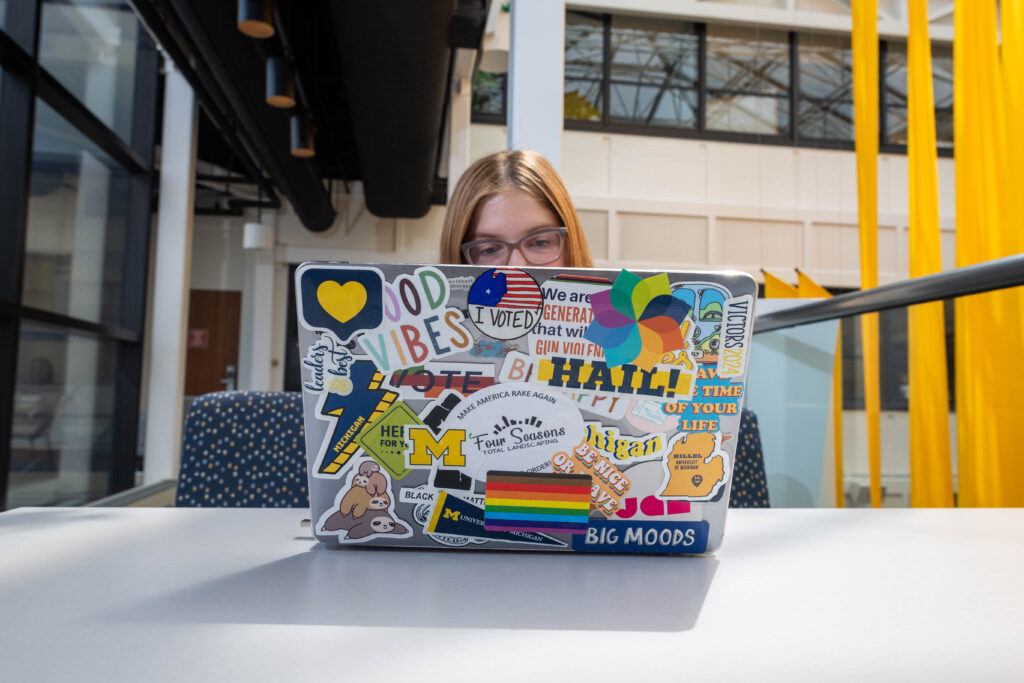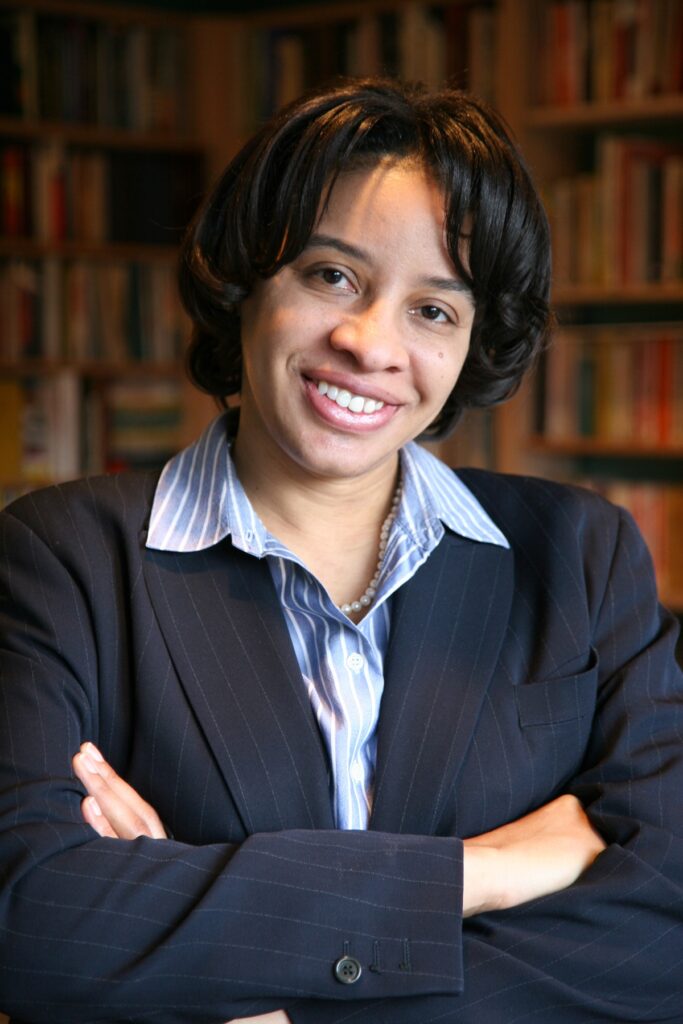
CAI working with partners to leverage educational technology that supports and empowers U-M students
Sean Corp, Communications Lead
Angela Dillard had a simple message for the leaders from throughout the University of Michigan who joined her for the first meeting of the core planning team for the Student Success Network – students who start strong, stay strong.
Helping first-year students achieve early momentum is one of the primary goals of the Student Success Initiative, led by Dillard, who began her role as the university’s inaugural vice provost for undergraduate education on Jan. 1. Research indicates one of the best ways to support students is by helping them achieve early momentum, which includes registering for and completing a full credit load by the end of Year 1 while forging strong bonds within the university community.

“Early momentum is vital for helping close equity and opportunity gaps facing our students. Additionally, having a full academic load is a driver of long-term success in retention and graduation. Many units around campus are serving these needs, and this is our opportunity to build on what’s working and create tools and strategies to help our students feel connected, feel their well-being is being acknowledged, and that they are able to take full advantage of everything a Michigan education has to offer,” Dillard said.
Dillard told the leaders gathered Sept. 30 at the Alexander G. Ruthven Building, who represented academic advising, student life, athletics, the Center for Academic Innovation, and schools and colleges throughout the university, that she’s excited to work together to leverage the diverse perspectives and experiences in helping define the work of the Student Success Initiative. She also shared with those gathered that a lot of exciting work is already underway.
During her first nine months in her role, she emphasized the importance of talking to partners throughout the university who have spent years building programs and developing tools to build support systems for students. That includes Student Life orientation programs, academic units that support first-generation students, and the Center for Academic Innovation, which has created a set of educational technology tools and frameworks that help students effectively plan their academic experience, select courses, and achieve greater academic success.
Following her appointment and adopting the charge to seek continuous improvements to foster success for undergraduate students, Dillard identified the center as a key partner in helping the university reach the goals outlined as part of the Student Success Initiative.
The center’s suite of educational technology tools is designed to deliver targeted, tailored messaging to students, help them work in teams, study for exams, and empower them to make informed decisions about their academic careers. In the center, Dillard saw a partner who could help reach students in new ways and build tools of support and exploration.
“The deep commitment and expertise of many partners across campus is crucial to achieving our goals for supporting student success at Michigan. The Center for Academic Innovation’s history of supporting students, and their capabilities to scale that support make them essential to our work,” Dillard said.
Together, the center and Dillard’s team at the Office of the Vice Provost for Undergraduate Education launched four projects aimed at helping students achieve early momentum in their first-year at Michigan.
The projects enhance existing tools with new features that provide new support systems for academic advisors, aid students in curricular exploration, and provide new resources to help incoming students learn essential course concepts and feel connected to the campus community.

“At the center, we identify key moments where the right intervention can make all the difference for students. Our evidence-based tools and personalized support systems empower students to confidently navigate their academic experience,” said James DeVaney, associate vice provost of academic innovation and the founding executive director of the center. “Our collaboration with the OVPUE team is an exciting opportunity to extend this approach, helping first-year students build early momentum and thrive at U-M.”
After extensive collaboration with the campus advising community, the center released Academic Advising ECoach in September. Building on the existing ECoach platform, which provides tailored messaging at scale to students, Academic Advising ECoach connects students to resources available to them when they might be struggling and provides advisors with an early alert tool and the means to provide more proactive assistance. It will also provide advisors with real-time grade data, the ability to track student progress, and the ability to deliver tailored messages to the students most in need of assistance.
ECoach is also helping students achieve early momentum by delivering messages to a pilot group of first-year students during key academic moments of the year. These messages foster academic and social integration and highlight the benefits of reaching a target number of credits in Year 1.
Atlas, a tool used by 99% of undergraduates on campus for course exploration and scheduling, will launch new features that empower students to make more informed decisions during Fall backpacking. Atlas will highlight the benefits of a full course load for undergraduates as they prepare their winter schedules and provide all students with personalized course exploration and recommendation tools and better visualize progress toward their degree program.
Michigan Online, home to more than 280 open online courses and course series, will feature targeted online resources and courses designed to support pre-college and first-year undergraduate students by improving their readiness for college and ability to engage in a positive first-year experience on campus.
“Nearly a decade of investment in Michigan Online, ECoach, and Atlas has built a sustainable infrastructure that allows us to support first-year students at scale. These platforms deliver tailored, timely resources and guidance to help students succeed academically and socially. By leveraging the power of these tools, we’re creating a connected, informed, and supported student experience from the moment they step on campus,” DeVaney said.
The center and a faculty advisory team will identify content needed to meet first-year student needs and develop a portal of online resources. The portal would include short-form video resources, three online courses focused on the unique challenges faced by incoming students, course tours, and an extension of student orientation that provides continued support for first-year students. All resources maintained on the portal would be designed to help pre-college and first-year students learn about, prepare for, and thrive at U-M.
More meetings are planned to gradually expand the Student Success Network, with the goal of bringing more voices to the table and building on new ideas for engaging and supporting U-M students.
“It’s on all of us to reconsider our strategies around advising, teaching, and academic support more generally as we seek to make institutional changes that will better support faculty, advisors, and student life staff while further empowering our students. Ultimately the goal is to foster an ecosystem of support that lowers barriers to access that everything a Michigan education has to offer as they pursue degree programs, co-curricular learning, and career preparation,” Dillard said.


